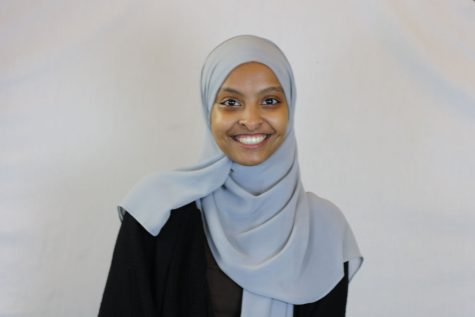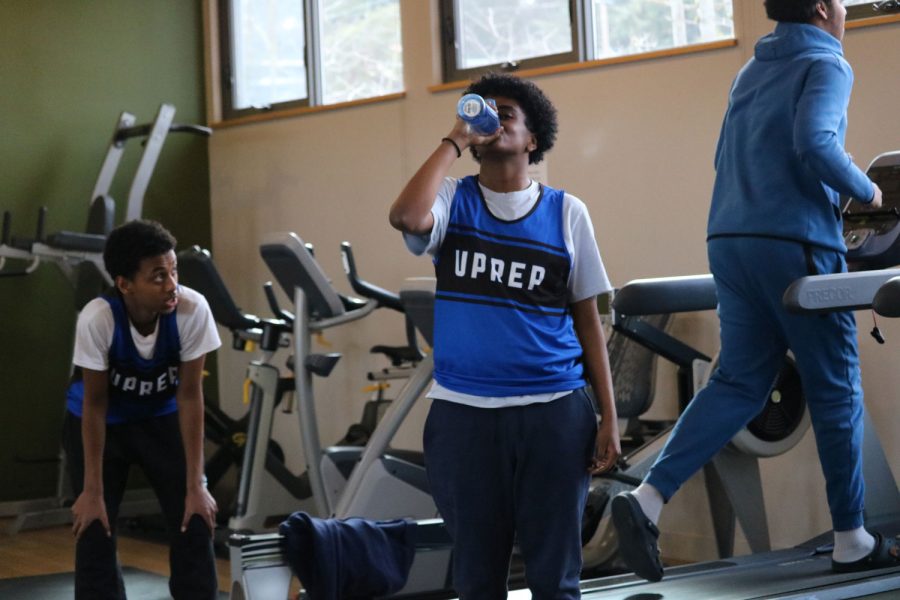Fasting and Staying Fit
Muslim Athletes that Fast during Ramadan share their experiences

As Ramadan began on March 22, Muslim student athletes contemplate the possible issues that may arise as the religious month in which they fast overlaps with the spring sports season.
Ramadan is the ninth month of the Muslim calendar where in order to fulfill the fourth pillar of Islam, Muslims abstain from consuming food, water, and other substances from sunrise to sunset.
This month, ninth grader Naveen Malik has been fasting while playing lacrosse for Nathan Hale and Ingraham’s joint team. Malik wishes that her coaches were more understanding about the condition of athletes who fast.
“Mostly I feel like the coaches, they don’t really understand how fasting works when I am playing,” Malik said. “They’re just like, ‘Oh, just take a drink of water.’ I can’t do that. So they don’t really give me a lot of breaks and they’re not really considerate.”
Junior Kian Baghai plays soccer for UPrep. Though fasting may be unfamiliar to those who don’t practice it, in the past, Baghai has been able to clear up possible misunderstandings through conversations with coaches and teammates.
“I guess a lot of people around me don’t understand, but after I kind of explain it to my coaches and teammates they generally all understand that it’s a challenge,” Baghai said. “But I have been able to get through it in the past years.”
In a coaches meeting that took place before the start of spring season, UPrep athletics director Rebecca Moe brought attention to student athletes that will be fasting during the season.
“I had all of my coaches on staff look at the season from beginning to end and highlight certain things that we needed to make sure we were aware of. That included highlighting Ramadan and making sure that everybody checked in with student athletes,” Moe said.
As P.E. department chair Kayla Robertson coaches track and field this season. With a lot of Muslim athletes on her team this year, she has made sure to accommodate them while considering the specific events they participate in.
“A lot of it is just working one on one with the student athletes that observe Ramadan and figuring out what they need,” Robertson said. “Some of the athletes are throwers or jumpers or runners, and each one is going to need something a little bit different depending on the events that they do.”
A Muslim student participating in track and field this spring may notice a change in their practice exercises that Robertson has implemented to better accommodate their conditions.
“We modify the training in terms of intensity. So like How hard are they working, but also in volume, so instead of giving them 10 One hundreds to do, maybe we reduce the volume and give more rest in time for recovery,” Robertson said.
For Muslim students like Malik, not being able to eat food raises challenges not only surrounding performances in athletics but also academics as a whole. To combat these challenges, Malik believes that communication between students and teachers is key.
“We, as the people fasting, need to inform our teachers that we are fasting first and then maybe tell them how we might not get everything in on time because we’ll be doing this and that, since fasting isn’t the only obligations we have as Muslims during Ramadan,” Malik said.


Ilham Mohamed is the graphics editor of the Puma Press and has been on staff for two years. Her favorite types of stories to write are usually experientials,...

